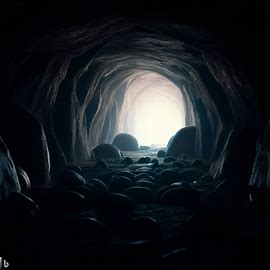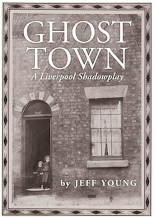I apologise for cutting and pasting this interesting extract from The Cultural Tutor Areopagus Volume LXII but I thought it was an interesting post for those on the periphery of Poetry, like myself who have yet to immerse themselves in the real world of mainstream Poetry. My thanks to the author who produces one of the most interesting websites and X (nee Twitter) threads, The Cultural Tutor and Twitter.
VI - Writing
In the beginning...
I have gathered here, for your perusal, the opening lines of several of history's most famous epic poems. Read them — not forgetting to enjoy and admire them, of course — and see if you can tell what they all have in common:
The Iliad of Homer
Sing, O goddess, the anger of Achilles son of Peleus, that brought countless ills upon the Achaeans.
The Odyssey of Homer
Tell me, O muse, of that ingenious hero who travelled far and wide after he had sacked the famous town of Troy. Many cities did he visit, and many were the nations with whose manners and customs he was acquainted; moreover he suffered much by sea while trying to save his own life and bring his men safely home; but do what he might he could not save his men, for they perished through their own sheer folly in eating the cattle of the Sun-god Hyperion; so the god prevented them from ever reaching home
The Aeneid of Virgil
Arms, and the man I sing, who, forc’d by fate,
And haughty Juno’s unrelenting hate,
Expell’d and exil’d, left the Trojan shore.
Long labours, both by sea and land, he bore,
And in the doubtful war, before he won
The Latian realm, and built the destin’d town...
Orlando Furioso by Ludovico Ariosto
Of ladies, knights, of passions and of wars,
of courtliness, and of valiant deeds I sing.
The Lusiads by Luís Vaz de Camões
Arms and the Heroes, who from Lisbon's shore,
Thro' seas where sail was never spread before,
Beyond where Ceylon lifts her spicy breast,
And waves her woods above the wat'ry waste,
With prowess more than human forc'd their way
To the fair kingdoms of the rising day:
What wars they wag'd, what seas, what dangers pass'd,
What glorious empire crown'd their toils at last,
Vent'rous I sing, on soaring pinions borne,
And all my country's wars the song adorn...
Jerusalem Delivered by Torquato Tasso
The sacred armies, and the godly knight,
That the great sepulchre of Christ did free,
I sing...
The Faerie Queene by Edmund Spenser
Lo I the man, whose Muse whilome did maske,
As time her taught, in lowly Shepheards weeds,
Am now enforst a far unfitter taske,
For trumpets sterne to chaunge mine Oaten reeds,
And sing of Knights and Ladies gentle deeds;
Whose prayses having slept in silence long,
Me, all too meane, the sacred Muse areeds
To blazon broade emongst her learned throng:
Fierce warres and faithfull loves shall moralize my song.
Paradise Lost by John Milton
Of Man’s first disobedience, and the fruit
Of that forbidden tree whose mortal taste
Brought death into the World, and all our woe,
With loss of Eden, till one greater Man
Restore us, and regain the blissful seat,
Sing, Heavenly Muse...
Paradise Regained by John Milton
I, who erewhile the happy Garden sung
By one man’s disobedience lost, now sing
Recovered Paradise to all mankind,
By one man’s firm obedience fully tried
Through all temptation, and the Tempter foiled
In all his wiles, defeated and repulsed,
And Eden raised in the waste Wilderness.
So, what do these opening lines all have in common? There are certain models you can probably detect which, once established, were imitated, whether Virgil's original arms and the man I sing or some sort of Homeric invocation to the muses. But, in all cases, the connection is deeper and much simpler. In every example of epic poetry given here, the poet wastes no time telling you exactly what the poem shall be about, and usually in very direct language. Shakespeare did the same thing at the outset of Romeo and Juliet:
Two households, both alike in dignity,
In fair Verona, where we lay our scene,
From ancient grudge break to new mutiny,
Where civil blood makes civil hands unclean.
From forth the fatal loins of these two foes
A pair of star-cross'd lovers take their life;
The reason I share all this is not only out of some scholarly interest. Rather, it's an important reminder not to fail to see the wood for the trees when we begin to write something. Tell the reader what they are about to read. Not all epic poems begin in this way, but the fact that many of them do should not be forgotten. Because, for all their length and complexity, their myriad characters and numerous plot-lines, the poet is in each case focussing on a single event or circumstance or theme, to which everything else is subsidiary. This clarity of intention cannot be underestimated. For if we begin with a single, simple intention in mind, and however complex the task becomes let it always be our north star, then we shall be surer of success and of creating something good than if we set out without a clear notion of where we are going. So, you see, these directly stated opening lines are for the poet as much as the reader. Any writer, of any sort of material, stands to gain by bearing this simple truth in mind.












